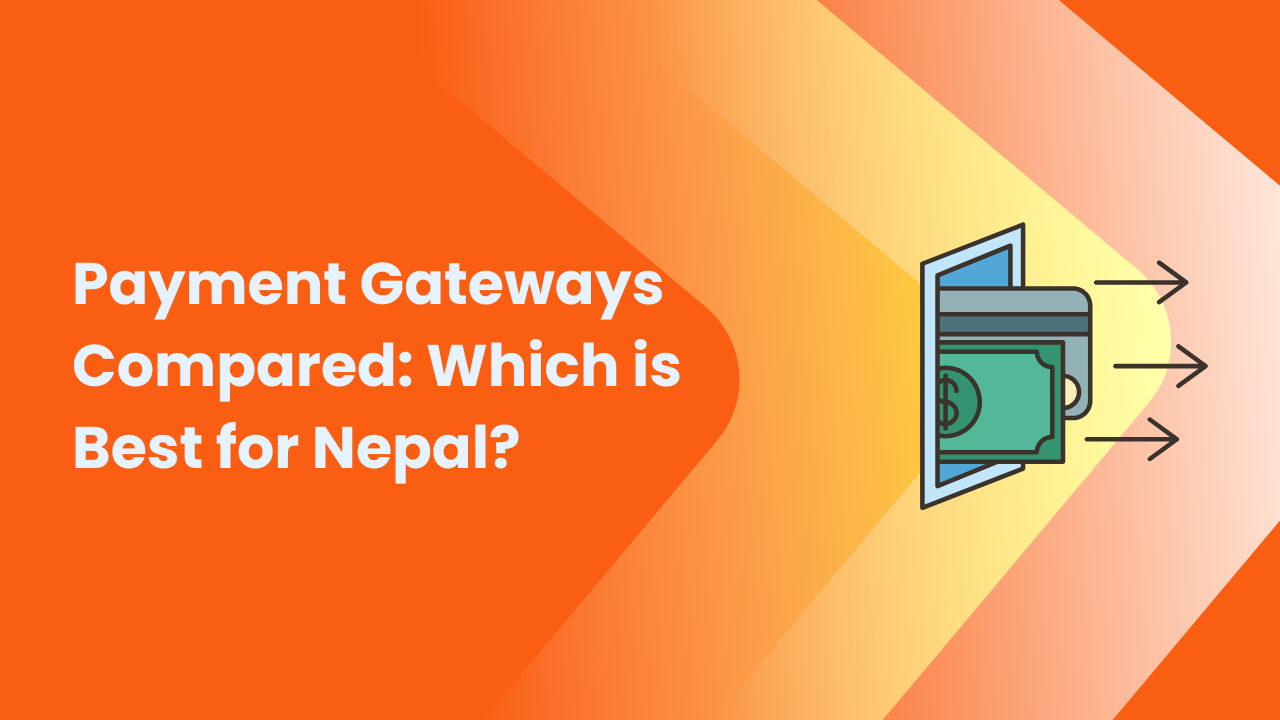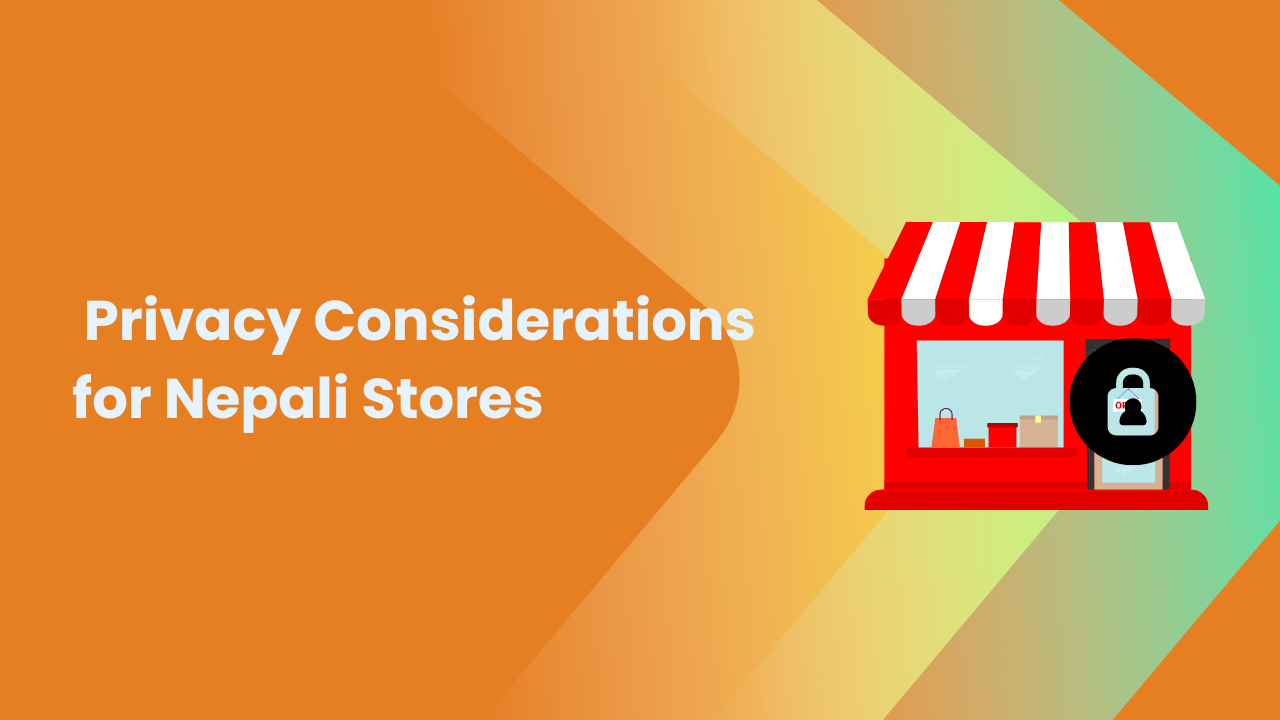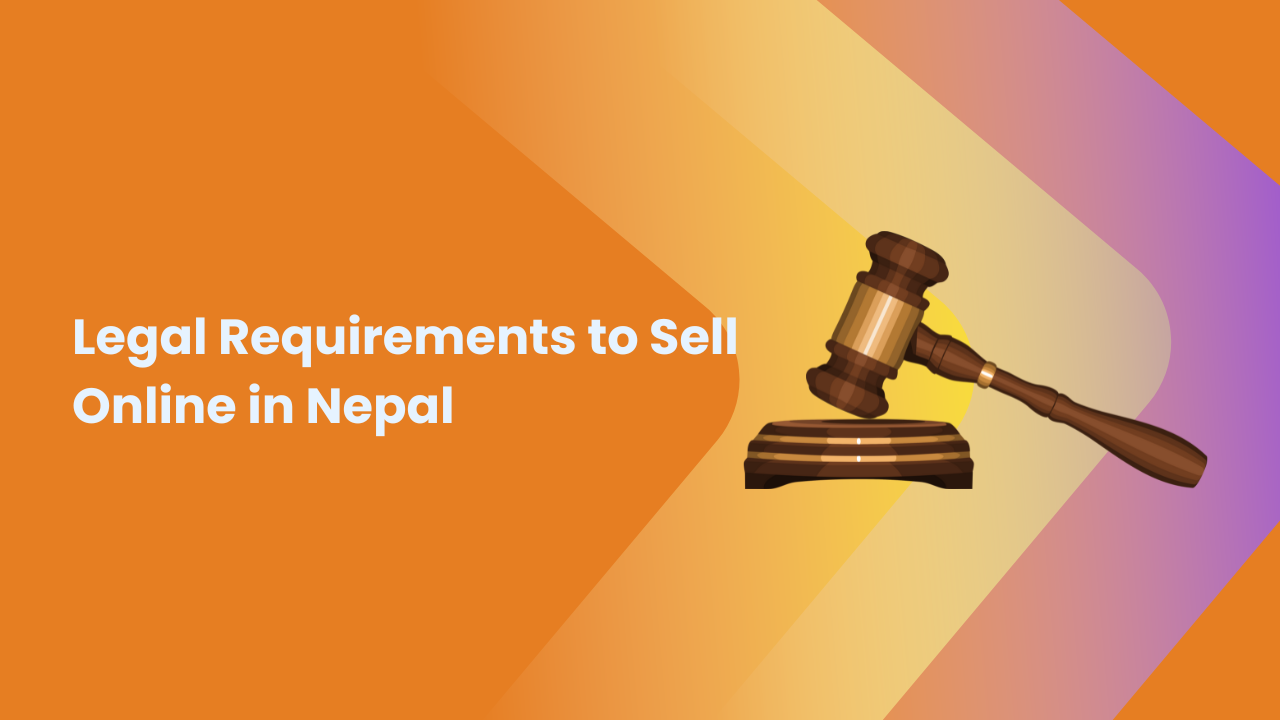Share this Article
Introduction
In the modern digital marketplace, the way customer data is collected, stored, used and shared is increasingly important not only for local laws but also for international standards. For online stores based in Nepal that use e-commerce platforms, mobile apps or social-media-based selling, attention to data protection is no longer optional. Although Nepal currently does not have a law that is as comprehensive as the GDPR, many consumers, payment / logistics partners, and international business tools expect high standards of privacy and security. Moreover, when a Nepali online store handles the personal data of individuals from the European Union (EU) or offers goods/services to them, the GDPR may apply directly. Thus, understanding GDPR, its principles and implications is valuable for Nepali online merchants seeking to build trust, reduce risk, and future-proof their operations.
What is GDPR and Why Does It Matter for Nepali Stores
The General Data Protection Regulation is a comprehensive data protection law of the European Union that entered into effect on 25 May 2018. European Data Protection Board+2Encyclopedia Britannica+2 Its primary objective is to provide a harmonised framework across EU member states that strengthens the rights of individuals (data subjects) and sets clear obligations for organisations processing personal data. EUR-Lex+1 One of the most important aspects for non–EU businesses, including those in Nepal, is the regulation’s extra-territorial scope: if a business outside the EU processes the personal data of EU residents, or markets goods or services to them, then it may fall within the purview of GDPR. GDPR.eu+1 For a Nepali online store, this means that even if the entire operation is domestic, if there is a possibility of EU-resident customers (or data flows from EU persons) then GDPR considerations may apply. Even where there is no direct EU link, the GDPR has become a global benchmark: many platforms, payment gateways, logistics providers expect data protection practices aligned with GDPR-style requirements. Therefore, embedding GDPR-inspired privacy practices can help Nepali online stores strengthen their reputation, manage risk, and prepare for growth.
Core Principles of GDPR
GDPR sets out several core principles that govern how personal data must be processed. These include lawfulness, fairness and transparency; purpose limitation; data minimization; accuracy; storage limitation; integrity and confidentiality (security); and accountability. .legal+1 For example, data should only be collected for specified legitimate purposes (purpose limitation), should be adequate and limited to what is necessary in relation to the purposes (data minimization), and should not be kept in identifiable form for longer than necessary (storage limitation). .legal+1 Moreover, organisations must be able to demonstrate compliance—meaning that policies, records, and audit trails are required (accountability). These principles are useful for Nepali online stores to adopt, regardless of whether full GDPR compliance is legally required, because they set a high standard for protecting customers’ data. By following these principles, a Nepali online store ensures that customer data is treated responsibly, helps avoid reputational risk, and aligns with best-practice in global e-commerce.
When Does GDPR Apply to a Nepali Online Store
It is critical for a Nepali e-commerce business to assess whether GDPR applies, and if so, what obligations must be met. The regulation applies where the data controller or processor is established in the EU, or where the entity outside the EU processes personal data of individuals in the EU in connection with offering them goods or services, or monitoring their behaviour within the EU. GDPR.eu+1 Therefore, if a Nepali online store sells to customers in the EU, advertises to EU residents, or uses tracking/monitoring of behaviour of EU individuals (e.g., via cookies or profiling), GDPR obligations kick in. Even if the store currently serves only Nepali customers, if any of its tools, vendors or platforms process data from EU individuals (for example an international payment gateway, marketing tool, analytics provider) then the store should consider whether GDPR-style compliance is relevant. A key takeaway for Nepali online stores is: even if domestic only, aligning with GDPR principles is prudent; if there is any link to EU individuals, formal GDPR obligations apply and non-compliance can result in enforcement actions abroad.
Key Rights Under GDPR That Online Stores Should Be Aware Of
One of the most powerful aspects of GDPR is the set of rights it grants to individuals. These include the right of access (to know what data is held), the right to rectify inaccuracies, the right to erasure (“right to be forgotten”), the right to data portability, the right to object to processing (including profiling) and the right to be informed about data breaches. EUR-Lex+1 For an online store, this means that if you are subject to GDPR you must be prepared to respond to requests from data subjects to access their data, correct or delete it, transfer it to another provider, or object to certain uses (for example for marketing). Although these rights may not yet be mandated under Nepali law in full, incorporating processes to honour them helps build trust, aligns with global standards and prepares you for potential regulatory change in Nepal. Moreover, when using third-party vendors or marketing tools, you should ensure your contracts enable such rights to be fulfilled.
Practical Privacy Considerations for Nepali Online Stores
For an online store in Nepal that wants to adopt GDPR-inspired privacy practices (or is in the scope of GDPR), several practical considerations arise. First, data mapping is essential: you should know what customer data you collect (names, contact details, payment information, location data, cookies, behaviour on site), where that data is stored, who accesses it, how long you retain it, and how it is disposed of. Because GDPR emphasises accountability, record-keeping must be meaningful. Secondly, you should review your consent practices: if you use cookies, analytics, customer profiling or marketing data, the consent must be freely given, specific, informed and unambiguous under GDPR. GDPR.eu+1 Thirdly, security must be robust: encryption, secure storage (at rest and in transit), access controls, audit logs, periodic testing and breach notification are all best practices. Fourthly, transparency is vital: your privacy policy must clearly describe what data you collect, why you collect it, how you use it, with whom you share it, how long you retain it, and what rights customers have. Although Nepali law may not yet require exactly the same format as GDPR, doing so will strengthen your brand’s credibility. Finally, if you use third-party providers (payment gateways, marketing platforms, analytics tools, logistics partners) you must ensure your agreements reflect the required data protection responsibilities—to ensure that data flows and processing activities behind the scenes comply with your promises to customers.
Data Transfers and Cross-Border Considerations
One area where GDPR poses a significant impact is in cross-border data transfers. GDPR restricts the transfer of personal data outside the EU unless certain safeguards are in place (such as adequacy decisions, standard contractual clauses, binding corporate rules). EUR-Lex+1 For a Nepali online store that processes data of EU individuals, if that data is stored or processed in Nepal or any non-EU country, the store must ensure appropriate safeguards are implemented. Even if the data transfers from Nepal to another country, or between vendors internationally, you must ensure contractual and technical protections. For a Nepali merchant, this means when selecting cloud-hosting, analytics providers, or marketing vendors abroad, you need to check whether their data transfer practices and contractual terms comply with GDPR-style safeguards. Failure to do so can increase legal risk, especially if EU data subjects bring claims.
Steps to Implement GDPR-Inspired Privacy Practices in Nepal
While formal GDPR compliance may not always be mandatory for purely domestic operations, adopting its practices is still beneficial. First, develop a clear privacy policy tailored to your online store, written in plain language and accessible to your customers. Then carry out a data audit or mapping exercise to catalogue data types, flows, storage locations and retention periods. Third, review and update your consent mechanisms—what cookies or trackers you use, how you ask customers for permission, how you document that consent and how you allow withdrawal. Fourth, implement technical and organisational security measures (encryption, regular backups, role based access, vendor security checks). Fifth, establish internal processes for responding to customer requests (access, erasure, correction) and breach incidents (notification, investigation, remediation). Sixth, keep documentation—records of processing activities, consent records, vendor assessments, security audits—to show you are accountable. Finally, train your staff (even small teams) in data protection awareness and culture of privacy. By following these steps, a Nepali online store can align with international standards, enhance customer trust, and prepare for future regulatory developments.
Why These Considerations Matter for Nepali Online Stores
Adopting GDPR-inspired privacy practices offers multiple benefits for an online store in Nepal. They help build credibility with customers who are increasingly aware of data protection issues, especially younger digital-savvy consumers. They ease integration with international digital services, payment gateways, marketing platforms, and partner ecosystems which often require strong privacy practices. They reduce risk of reputational damage, customer churn, or vendor termination due to privacy lapses. They also prepare the business for future data protection regulation in Nepal (which many expect to tighten), so you are ahead of the curve. Additionally, if your business ever scales to serve international customers (including the EU), you will already have the architecture in place to meet or approach GDPR obligations. In short, privacy is not just a legal risk—it is a business asset.
Challenges and Considerations Specific to the Nepalese Context
There are a few challenges when applying GDPR-style practices in Nepal’s environment. First, infrastructure constraints—such as data hosting, reliable backups, technical expertise, staff training—may increase cost for smaller online stores. Second, legal frameworks in Nepal are still evolving, and so the specific local obligations may be less clear than GDPR’s well-defined rules; this means online stores may have to interpret best practices themselves. Third, consumer awareness in Nepal may be lower than in Europe, which means your communication and policies must be both simple and educational. Fourth, because many Nepali online sellers use social media or informal channels, implementing full data mapping and vendor contracts may be more complex. Despite these challenges, the benefits make it worthwhile—and the incremental steps you take will pay off as your business grows.
Conclusion
In conclusion, while the GDPR is an EU regulation, its influence has extended globally and its principles are now widely regarded as best practice in data protection. For Nepali online stores, whether they serve domestic or international customers, considering GDPR and privacy-related practices is wise. By following its core principles—lawfulness, transparency, purpose limitation, data minimization, storage limitation, integrity, confidentiality and accountability—an online store can reduce risk, build trust and position itself for growth in a more regulated and privacy-aware marketplace. Preparing early for stronger data protection standards, documenting your processes, reviewing vendor relationships and engaging customers with clear and respectful data practices will help your business become a leader in responsible online commerce.
Categories:
E-commerce Tips & Tutorials
Tags:
Online Store in Nepal
,
local businesses
,
e-commerce app
,
Small Business
,
strong brand
,
E-commerce







